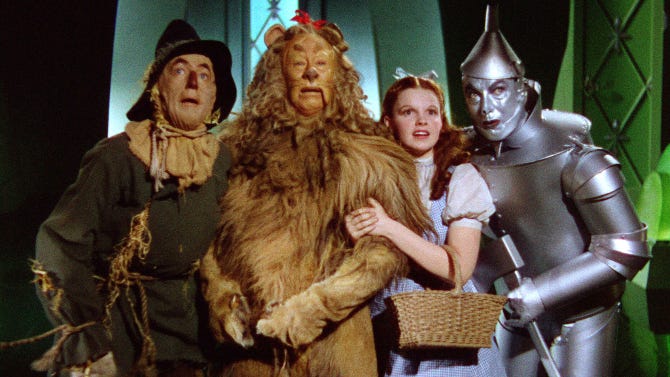This chapter presents a tension between standalone and context. In context, it's dripping with toxic positivity. Isolated, this chapter can be a pulpit sermon. It's a little boring and saccharine, but it's not too offensive. We may even want to believe Eliphaz.
This chapter has three parts. First, vexation kills the fool. Eliphaz once saw a fool who seemed unstoppable (rooted), yet lost everything. His children saw oppression. Some stole his money. The hungry ate his harvests. Also, everyone is a troublemaker, just as sparks fly into the sky. Second, you should trust God because God thwarts evil and protects the needy. Finally, happy is the one who God rebukes. God injures but also heals. You will be fine. Everything will work out.
This is perfectly acceptable rational discourse. It might be wishful thinking, but it seems like he means well. He fully expects Job to say “I agree. I've been foolish to be so depressed. Everything happens for a reason. When God closes a door, he opens a window. I won't complain about dead children or lost income or skin cancer ever again!”
Beyond context, the text is working against Eliphaz. The anecdote about seeing the fool who was suddenly cursed and lost everything mirrors Job's lives. Is he trying to tell Job that he's a fool? Is Job the fool that he saw? All men are troublemakers from birth. Is he implying that Job is guilty and deserves his fate? Or is he speaking in generalities? He saw a fool lose everything. Everyone deserves to suffer. Is he trying to warn Job or comfort him?
The anecdote just doesn't work. Eliphaz saw one case of divine justice. So what? Today we see horrible people lose everything all the time. R. Kelly went to jail. Milo Yiannopolous disappeared. Joseph McCarthy died of alcoholism. However, the evil, the foolish, the stupid and the vulgar don't always lose. For every Harvey Weinstein, there's an Andrew Tate conning teenage boys into his misogynist MLM. Mao and Stalin died at the height of power. Hitler's downfall only came after millions were murdered.
Assuming that his anecdote has convinced Job, Eliphaz follows up “people are troublemakers from birth” with admonishment to follow God because God makes rain. That's two references to Noah and the Flood. Even as Eliphaz is trying to sell God as a benevolent being who thwarts evil and comforts the wretched, he alludes to that time God killed everyone.
Beyond the Flood, Eliphaz is selling a very agreeable story. The crafty will get caught. God will save the needy. We like this story. Currently, The Beekeeper is in movie theaters telling the same story. Scammers may con innocent old ladies out of their life saves, but Jason Statham will kill them. Certainly God can bring down Bankman-Fried and whomever stole my SNAP benefits in November.
This all leads to the third sections that begins with positive framing. “Happy is the one who God corrects.” God wounds but also heal. Then Eliphaz tells Job (and the reader) that everything will work out. You will be protected from gossip, violence, starvation, lions, tigers and bears. You will have offspring more numerous than the grass in the field.
One aside. Most translations of 5:24 say “you will know that all is well in your tent; when you visit home, all will be well” but JPS translates the last part as “when you visit your wife, you will never fail,” which sounds like Eliphaz is promising Job a life free of erectile dysfunction. Sadly, it's probably not the correct translation.
Even the most generous reading of this chapter cannot avoid the full douchebag last line. Eliphaz says that he KNOWS what he's talking about because he searched it out? How? Did he read books? Look at the stars? Converse with shadowy figures? Ultimately, we don't know what's coming in the future. You can read horoscopes, go to psychics, obsessively reload the Nate Silver site, but ultimately you don't know what's coming.
Eliphaz actually believes that he knows the future.
Not only does Eliphaz know the future, he is certain that Job will believe him if he listens to him.
In other words, search your feelings, Job. You know it's true.
This is a cool line in Star Wars. In real life, it's just obnoxious.
Next Week: Job does not agree with Eliphaz.








